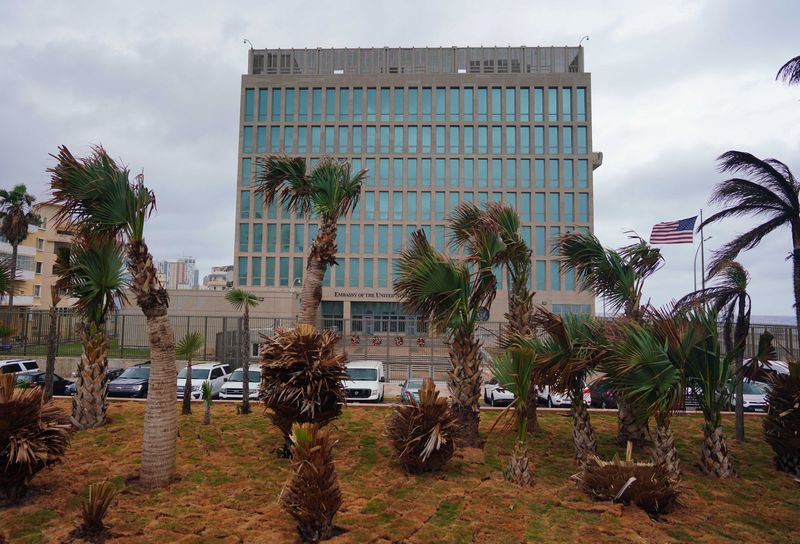Street Calls of the Week
By Jonathan Landay and Erin Banco
WASHINGTON (Reuters) -Most U.S. spy agencies have reaffirmed it is "very unlikely" that a foreign foe was responsible for so-called Havana Syndrome ailments suffered by hundreds of U.S. personnel and family members, a U.S. intelligence report said on Friday.
One agency, however, now believes there is a "roughly even chance" that a foreign actor used a new weapon against a small subset of those who reported severe headaches, nausea, memory lapses and dizziness, an unclassified summary of the assessment showed.
A U.S. Office of the Director of National Intelligence (ODNI) official, speaking on condition of anonymity, declined to identify during a briefing for reporters any agency involved in the assessment.
A White House statement said President-elect Donald Trump's incoming administration would be briefed on ongoing research, including into whether a small number of U.S. personnel had been hit with pulsed electromagnetic or acoustic energy.
Mark Zaid, a lawyer representing more than two dozen U.S. personnel and family members who suffered ailments, said the report revealed a disagreement among spy agencies and "disgracefully continues to hide the truth" that a foreign foe is responsible.
He said in a statement that he planned to file a lawsuit next month to compel the release of the entire assessment.
The ailments were first reported by personnel at the U.S. embassy in Havana in 2016, leading to suspicions they might have been deliberately caused by a foreign power, or by non-state foreign attackers. Cuba has repeatedly denied any involvement.
2023 REPORT FOUND OTHER CAUSES LIKELY
A globe-spanning U.S. intelligence investigation concluded in March 2023 that it was very unlikely a foreign adversary was responsible for the ailments that have afflicted some 1,500 U.S. diplomats, spies, other personnel and their families.
It found the symptoms, reports of which peaked in 2021 and have since dramatically tapered off, likely resulted from pre-existing conditions, conventional illnesses and environmental and social factors.
Of seven agencies involved in the latest assessment, five "continue to assess it is very unlikely a foreign adversary is responsible" for what the U.S. government calls anomalous health incidents (AHIs), said the summary.
Possible AHIs reported since the 2023 report and intelligence reports collected since then "point away from foreign actors," it continued, without elaborating.
Two other agencies, however, have shifted their judgments since 2023, the summary said.
One of those agencies now believes there is a "roughly even chance" that a foreign actor used "a novel weapon or prototype device" against "a small, undetermined subset of U.S. personnel or dependents" who reported symptoms, it said.
The second agency judged that there was a "roughly even chance" that a foreign actor has developed such a weapon or prototype, but it was unlikely that it was deployed, the summary continued.
However, both agencies have "low confidence" in their conclusions, the summary said, which were based on intelligence reports that unidentified foreign actors have made progress researching directed energy weapons.
The other five agencies found that it was "very unlikely" a foreign actor has developed a weapon that fires electromagnetic or laser pulses, the summary said.
The official said recent media reports linking Russia to AHIs have been fully evaluated and do not hold up to scrutiny.
The official stressed that the assessment team of doctors, scientists, engineers and experts in counterintelligence and foreign weapons only examined "potential foreign responsibility."
No agency questions the suffering of U.S. government personnel and dependents, said the official. "These personnel and dependents experienced genuine, sometimes painful and traumatic physical symptoms."
The new assessment comes two weeks after the Senate intelligence committee released a report criticizing the CIA's response to AHIs.
